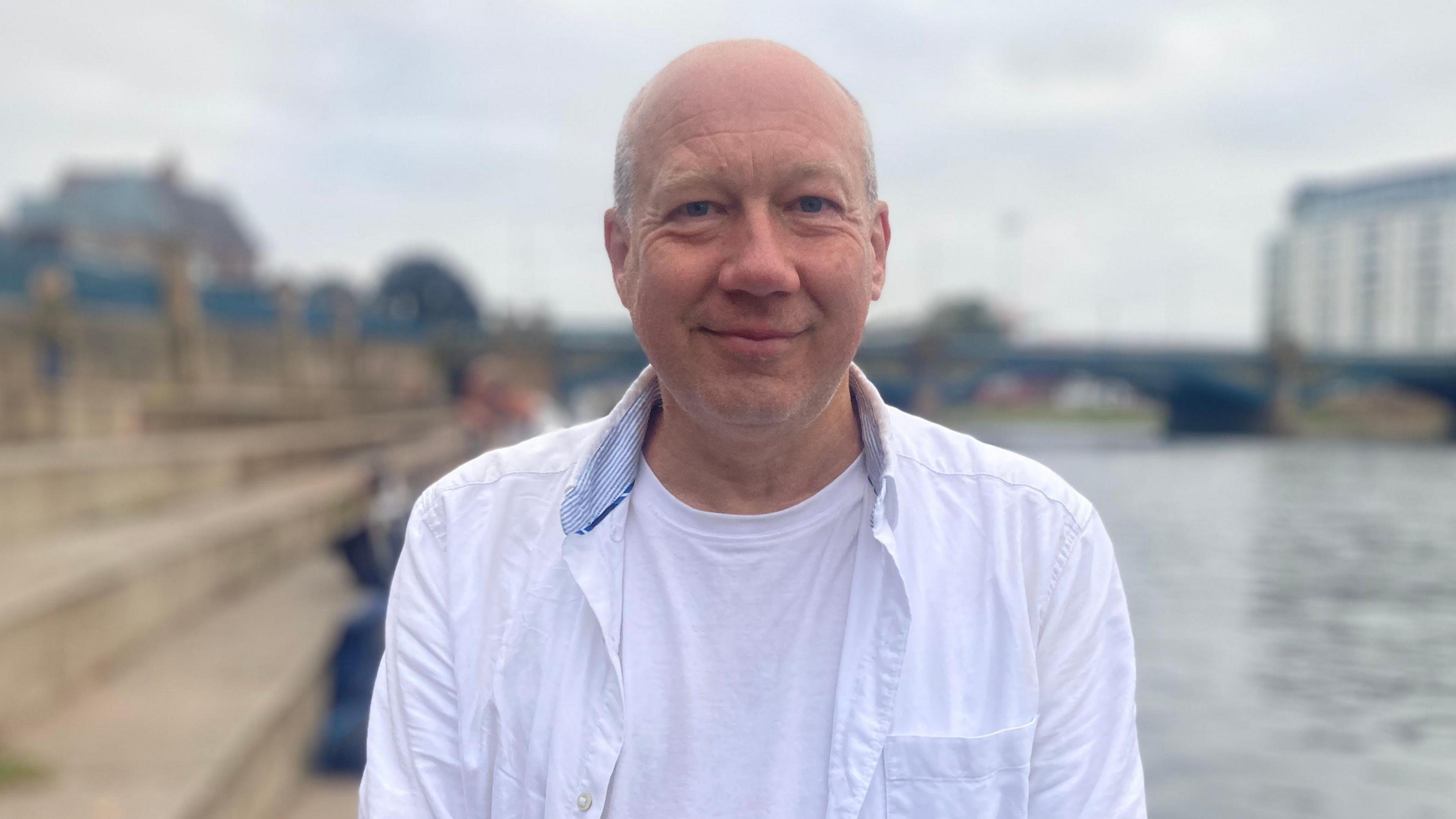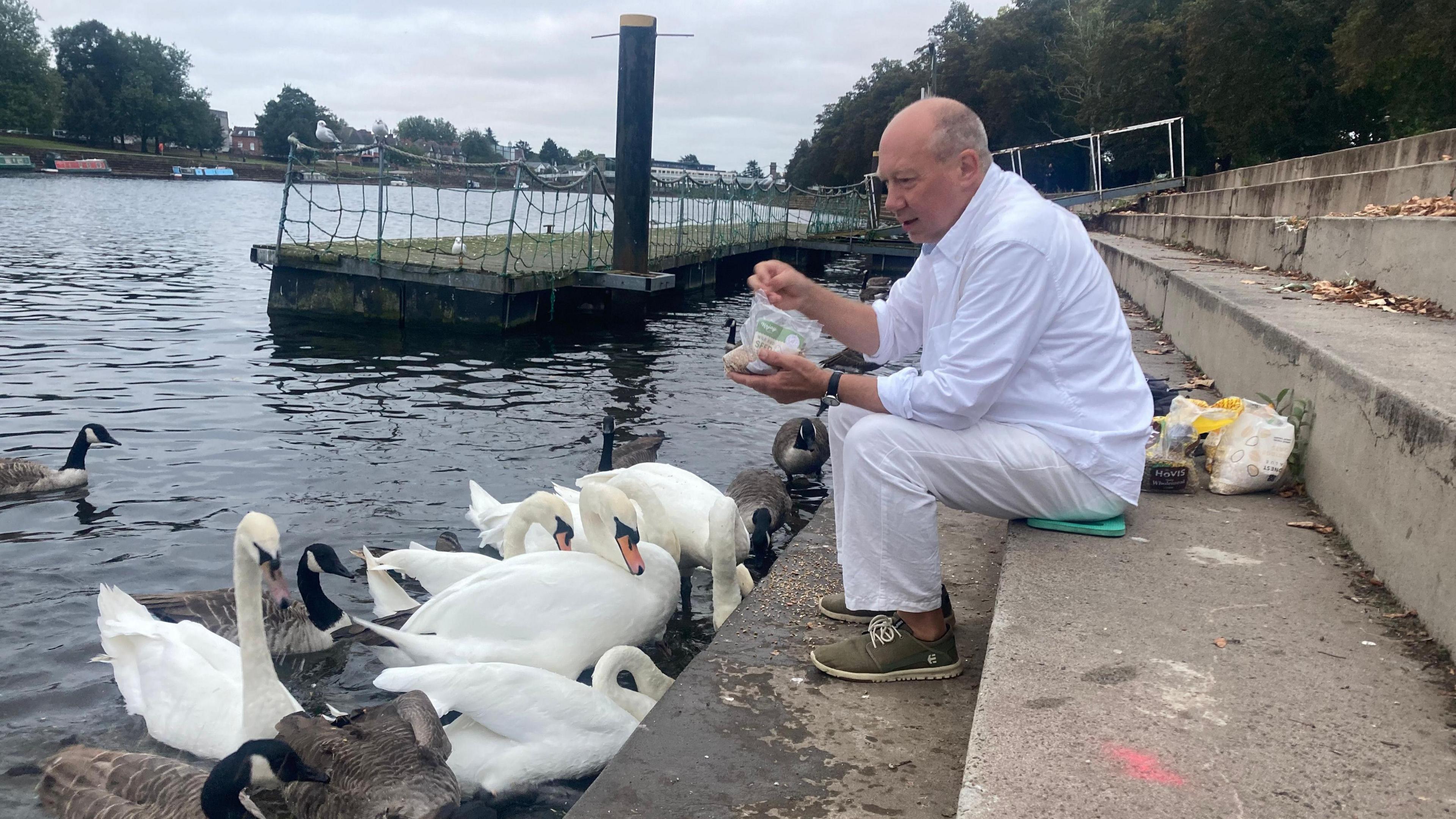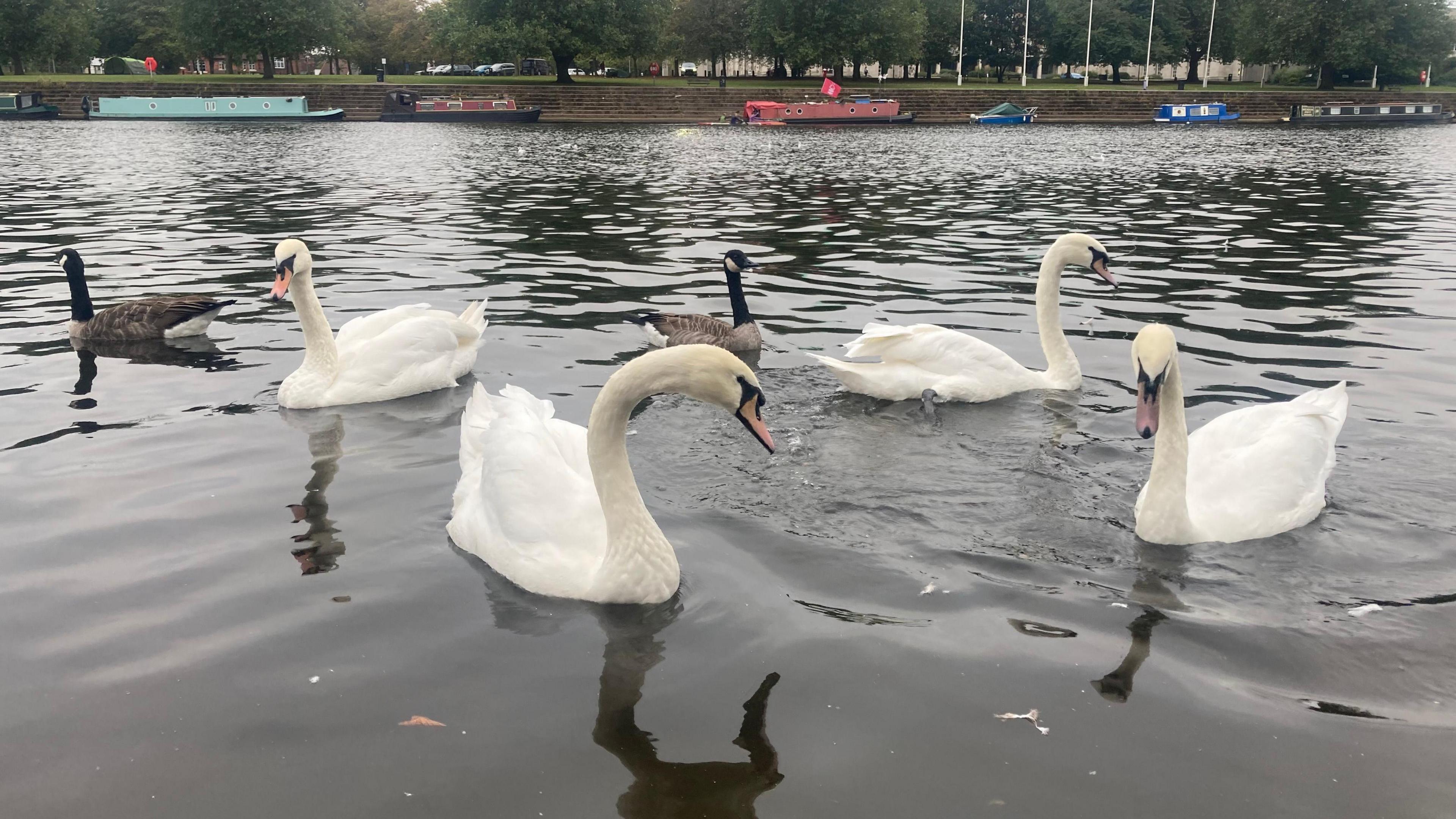'Rescuing swans gives me a sense of purpose'

Simon Withers has been rescuing and feeding Nottingham's swans since 2019
- Published
A wildlife lover's daily checks on whether swans are injured, unwell or in need of rescue have earned him the "flattering" nickname the "swan man".
Since September 2019, Simon Withers has dedicated his time to feeding the birds and looking out for those in need of help along the River Trent in Nottingham.
The 60-year-old, of West Bridgford, keeps detailed records, noting the different species of swans, the locations of their nests, and any incidents that may put them in danger.
Being called the "swan man" is "flattering", he says, and "brings a smile".
"What is lovely is that people who have never met me now know me for the work that I do with the swans," said Mr Withers.
After taking an unexpected break from his art career due to mental health struggles, Mr Withers sought a creative outlet to help with his recovery.

Mr Withers sits at the same spot every day to feed and monitor the swan activity
With a digital camera, he turned to wildlife photography, focusing on the swans along the River Trent.
"I felt that we needed a trade-off where I feed them in exchange for taking photos," he said.
The more photographs he took, the more he began to see anomalies within the swan’s posture, he says.
"Some would be ill or have fishing line in them, and so it got to the point where I couldn’t not intervene, so I’d try to find approaches to contribute to the saving of that swan."
Since then, Mr Withers has monitored a mile and a half stretch of the River Trent every day.
His routine starts near Trent Bridge along the Victoria Embankment and continues toward Wilford Suspension Bridge, eventually reaching Wilford Toll Bridge.

Mr Withers says being recognised as "swan man" is very flattering and brings him a smile
While Simon takes pride in helping these swans, he does not want to encourage others to risk their safety near open water when they see an animal in trouble.
He works closely with Linjoy Wildlife Sanctuary, where he often takes ill and injured swans for further treatment.
“I don’t particularly like water, but I do it as safely as I can and I trust myself," he said.
"It’s about confidence but every time I do see a swan in some sort of distress, it makes me really anxious. The most responsible way to help these animals is to gain knowledge and awareness."
Lindsay Newell, from Linjoy Wildlife Sanctuary, says the team are grateful for Mr Withers' work.
A spokesperson said: "We have called Simon several times to assist containing a swan until our volunteers arrive.
"Also, because he feeds the birds and knows the groups, it makes it easier for us to reunite pairs and track injured birds."
The RSPCA urges people not to "rescue, handle or transport larger birds yourself, as swans, geese and birds of prey can be aggressive when stressed or injured."
"We’re grateful to all animal-lovers for helping to create a kinder world for every kind, and further information and guidance can be found on the RSPCA website," a spokesperson said.
Get in touch
Tell us which stories we should cover in Nottingham
Follow BBC Nottingham on Facebook, external, on X, external, or on Instagram, external. Send your story ideas to eastmidsnews@bbc.co.uk, external or via WhatsApp, external on 0808 100 2210.